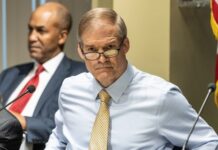
Dr. Anthony Fauci, the former Director of the National Institute of Allergy and Infectious Diseases (NIAID), recently expressed his deep-seated fears about a future pandemic.
In an editorial, he confessed his ‘worst nightmare’ had come true with the COVID-19 pandemic; he is deeply concerned we have not learned enough from this global health crisis.
The COVID-19 pandemic has indeed been a nightmare for the world, causing unprecedented disruption to our lives and economies. However, it is concerning that Dr. Fauci, who was at the helm of the U.S. response to the pandemic, believes we have not learned anything from this experience.
This statement raises questions about the effectiveness of the strategies implemented under his leadership.
Anthony Fauci EXPOSED! pic.twitter.com/NQiZ461AtX
— Jake Rattlesnake (@jakerattlesnk) October 17, 2023
It is crucial to remember learning from past experiences is the key to preventing future disasters. If Dr. Fauci believes we have not learned anything from the COVID-19 pandemic, then it is incumbent upon him to outline what those lessons should be in a non-tyrannical manner.
Moreover, Dr. Fauci’s fear of an ‘inevitable’ future pandemic can remind us of the need to approach such warnings with a balanced perspective. While it is essential to prepare for potential health crises, it is equally important not to incite unnecessary fear or panic.
Well, look at Fauci run! 🏃 pic.twitter.com/c6Fys9YFoh
— Cyndi (@OffCyndisc) October 23, 2023
The use of terms like ‘inevitable’ can create a sense of impending doom, which may not be helpful in fostering a calm and rational approach to pandemic preparedness.
Dr. Fauci’s recent comments serve as a reminder of the importance of learning from our experiences with the COVID-19 pandemic.
They underscore the need for continued vigilance and proactive measures. However, it is also crucial to maintain a balanced perspective and not let fear dictate our approach to pandemic preparedness.
As we move forward, let us take Dr. Fauci’s words as a call to action, rather than a prophecy of doom. Let us strive to learn from our past experiences, improve our strategies, and work together to ensure a healthier and safer future for all.
This article appeared in Our Patriot and has been published here with permission.












